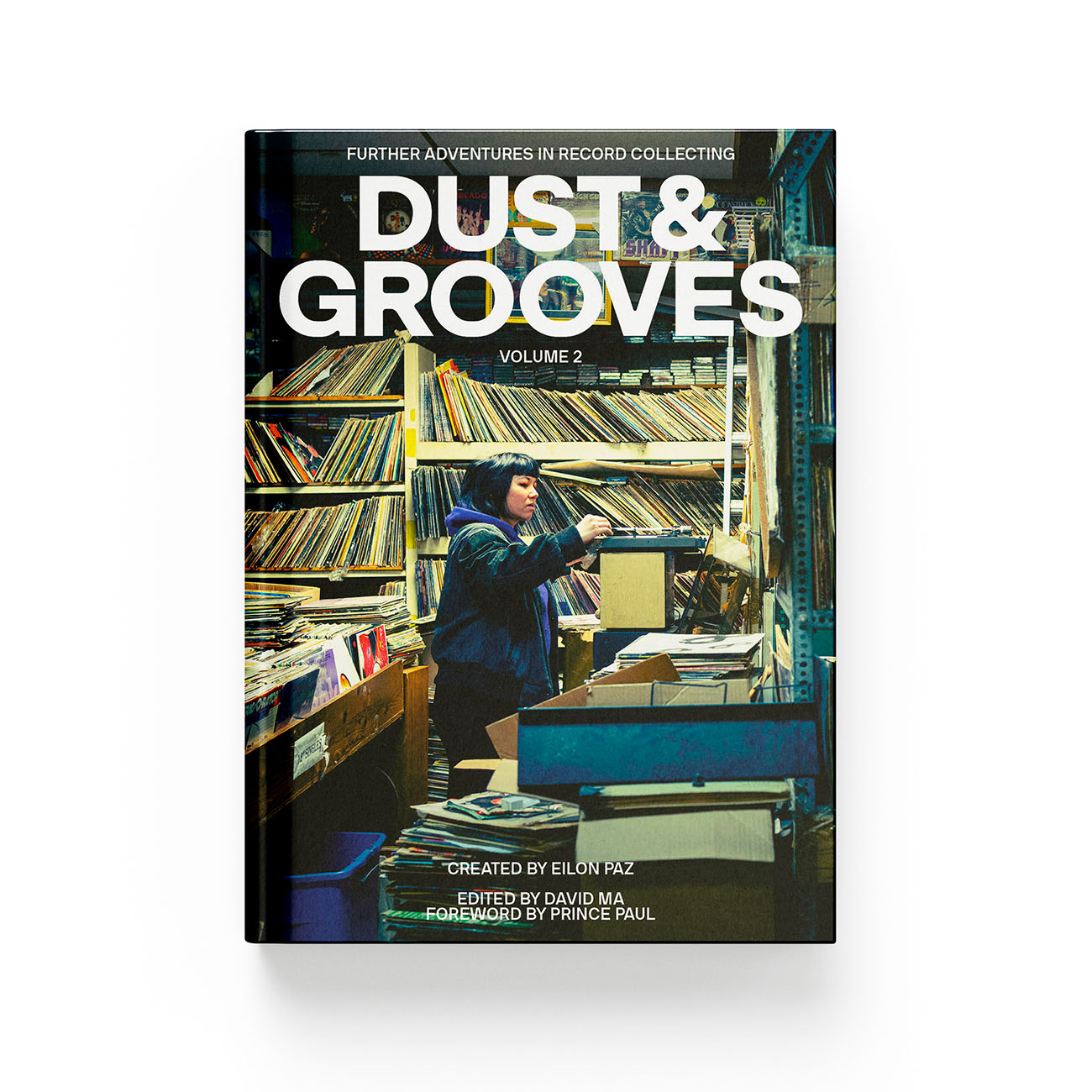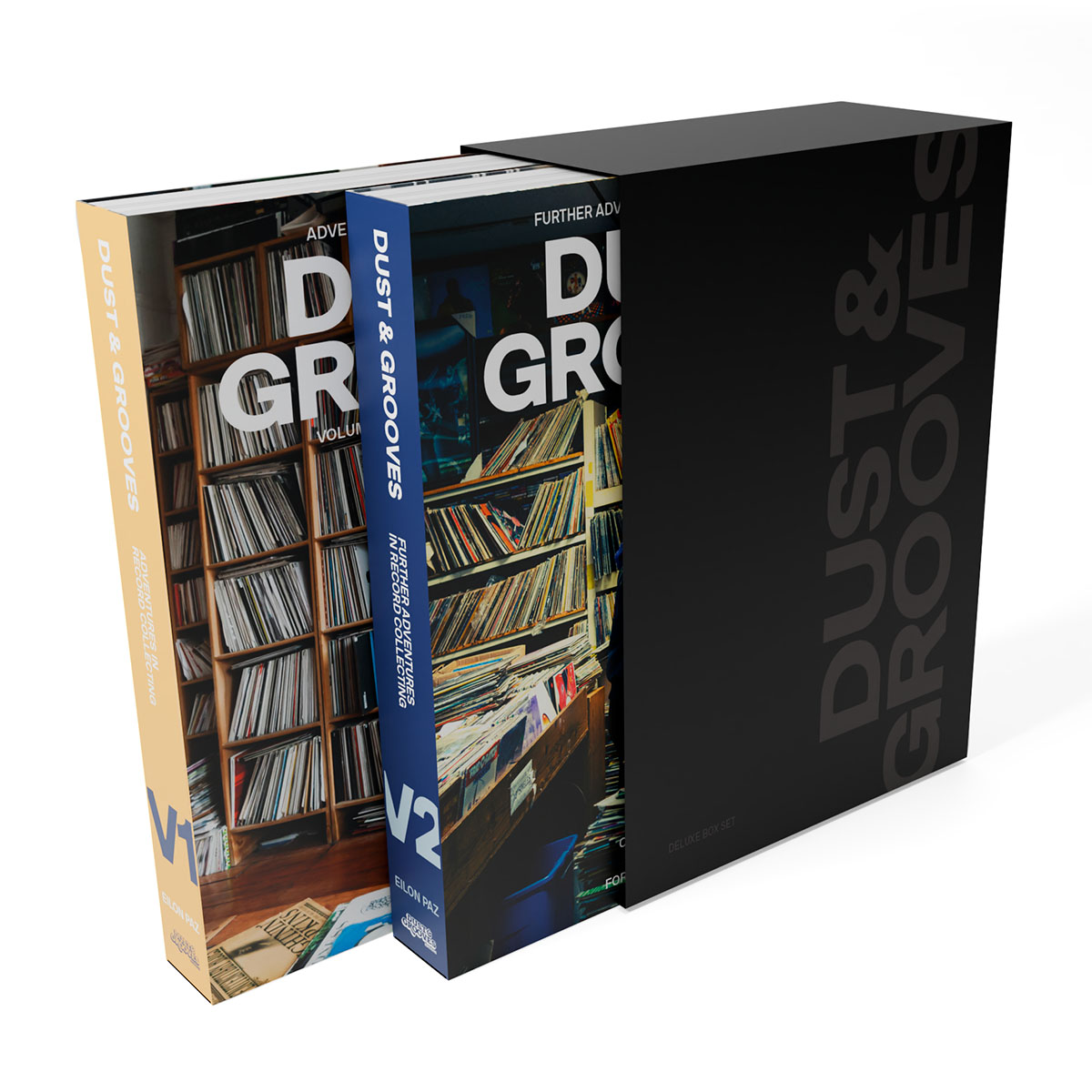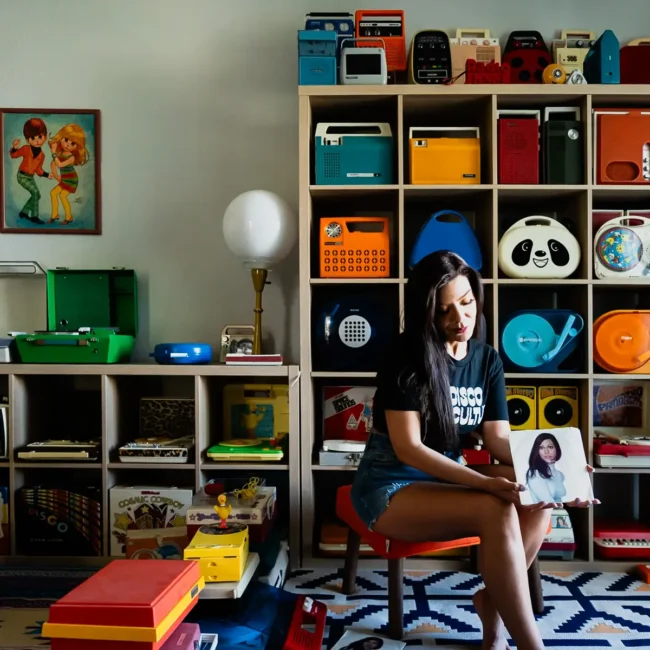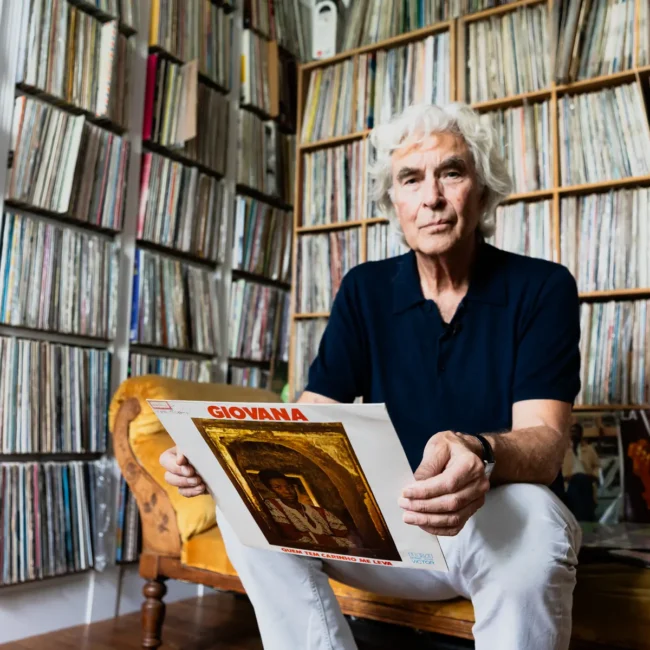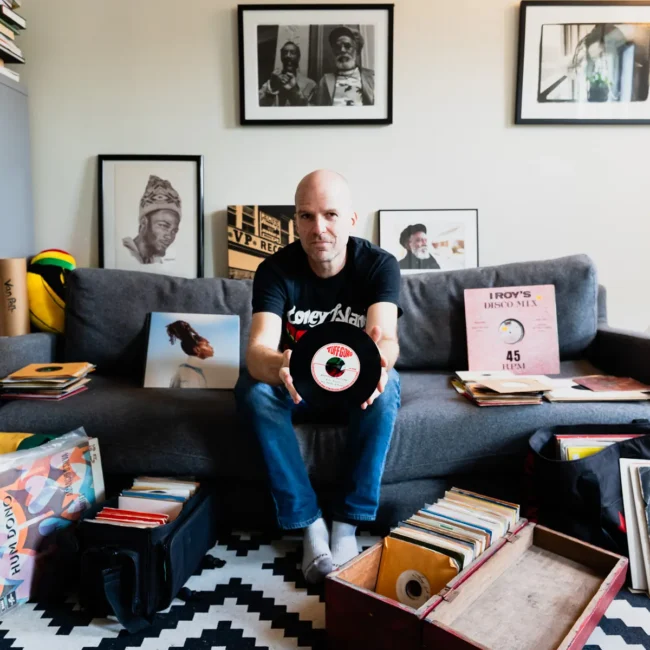One of John DeVore’s earliest memories finds him lying under his mother’s piano while she played Bach.
“When you’re underneath you hear some of the sort of creaks, and you hear the pedal actuators and there’s more of a physical…it’s sort of like being in a really small cabin that’s making music. Literally all around you, there are three giant legs pinning you in, the roof of the cabin is the soundboard, you know the pedals are on one side going up and down, and you’re feeling the force of the hands on the keyboard. Just an overwhelming sense of melody and tune and notes kind of pummeling you.” He describes this experience as a private sound world that revealed the piano’s mechanical workings, brute physicality, and the pianist’s intense labor that went into creating something that sounded effortless. When all of these parts came together, it went beyond practice and became a kind of deep meditation.
As a kid, DeVore was known as a go-to source for mixtapes, personalized mixes on cassettes of music that existed outside the popular, outside the obvious. This is also when his love of the experience of listening to recorded music on the hi-fi took root. “I am an audiophile and I was an audiophile all the way back as far as I can remember.”
In college, unable to afford the speakers he heard at HiFi shops, DeVore started designing and building his own. After graduating he continued building as a hobby in New York City, where word of his creations led to commissioned builds for friends. In 2000, this passion project became his profession, and DeVore Fidelity was born. “I sort of parallel parked my way into it really gradually. It wasn’t like walking through a door.”
Even a cursory look around the Monkeyhaus, DeVore’s playful name for the listening room/office built inside the larger loft-like space in the Brooklyn Navy Yard that his company calls home, reveals the workings of a rabid record collector. This inviting space, which can be seen as a large version of his childhood piano cabin, is the heart of DeVore Fidelity, functioning as an office, listening room, and proving ground where DeVore tests his latest creations.
In terms of a focus for his collecting, DeVore is clearly in the more is merrier camp. “I spend a ton of money on records but that’s because I buy a ton of records.” While there are tantalizing treasures out there, his real passion lies in collecting new releases and the obscure. This hunt is fueled by favorite radio stations, Bandcamp, favorite record labels and musicians, and the connections that can be drawn from one record to another, from one musician to another like endless webs woven by some great cosmic composer.
For DeVore, listening to a record is ritual-like, “It demands attention and it sort of stills your mind in that…the act of taking it out of the sleeve and putting it on and queuing it up and then going back to your seat and sitting down is sort of like the countdown to a meditation.”
And records are fragile souls, as Haruki Murakami described the experience in South of the Border, West of the Sun, “It wasn’t a record she was handling. It was a fragile soul inside a glass bottle.” For DeVore, this translates into an experience that needs to be cherished with every play of a record, a moment in time that may not be repeatable.
“To some extent maybe there’s also a preciousness to a record, this idea maybe in the back of my mind that this record will only be played a certain number of times in its existence…While it’s still perfect, while it’s still really able to give me the music that’s in the grooves fully, I should be paying attention because if I miss it, it may be the last chance.”
Most of DeVore’s life has been spent in and around people who make music and people who value the experience of listening to music on the hi-fi as an act that deserves, and in many ways demands, our complete attention. In this world, records are promises of a meditative mindfulness connecting us to precious moments in time.
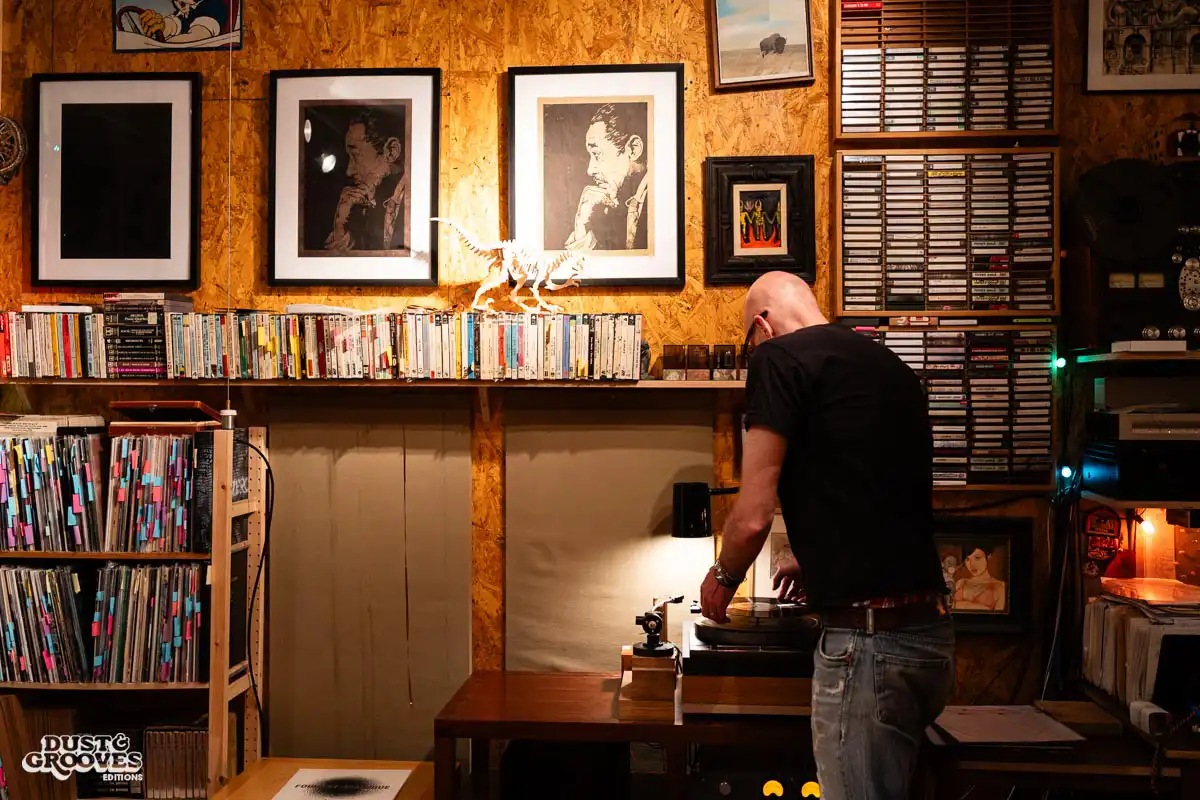
"I would say that being raised by a musician had the biggest influence on the way I listen to music. I am an audiophile and I was an audiophile as far as I can remember."
John Devore Tweet
What is your earliest music memory?
My memory is not clear enough to know which is going to go back further in time so I have two—one is in the recorded realm and one is in the real realm. In the real realm, my earliest memory is of my mom playing piano. She was a classical pianist so she was always practicing. She would play a lot of chamber music, trios, or quartets, so when they needed to rehearse, the musicians would come to our house because we had the piano. I got to hear not only her practicing solo piano, I also got to hear lots of chamber music rehearsals.
I have very early memories of being small and lying on my back under our small grand piano, staring up at the piano’s soundboard and listening to her play music.
When you’re underneath a piano you hear some of the creeks and the pedal actuators and there’s more of a physical experience. It’s like being in a small cabin that’s making music. There are four giant legs pinning you in, the roof of the cabin is the soundboard, the petals are on one side going up and down and you’re feeling the force of hands on the keyboard. And then comes an overwhelming sense of melody and tune and notes pummeling you.
She played a lot of Bach’s solo keyboard works. For her, it wasn’t just practicing or warm up–playing Bach was a meditation for her. Because of the nature of Bach’s music, it’s this sort of perfected mode of writing, when you play it right it is just so right.
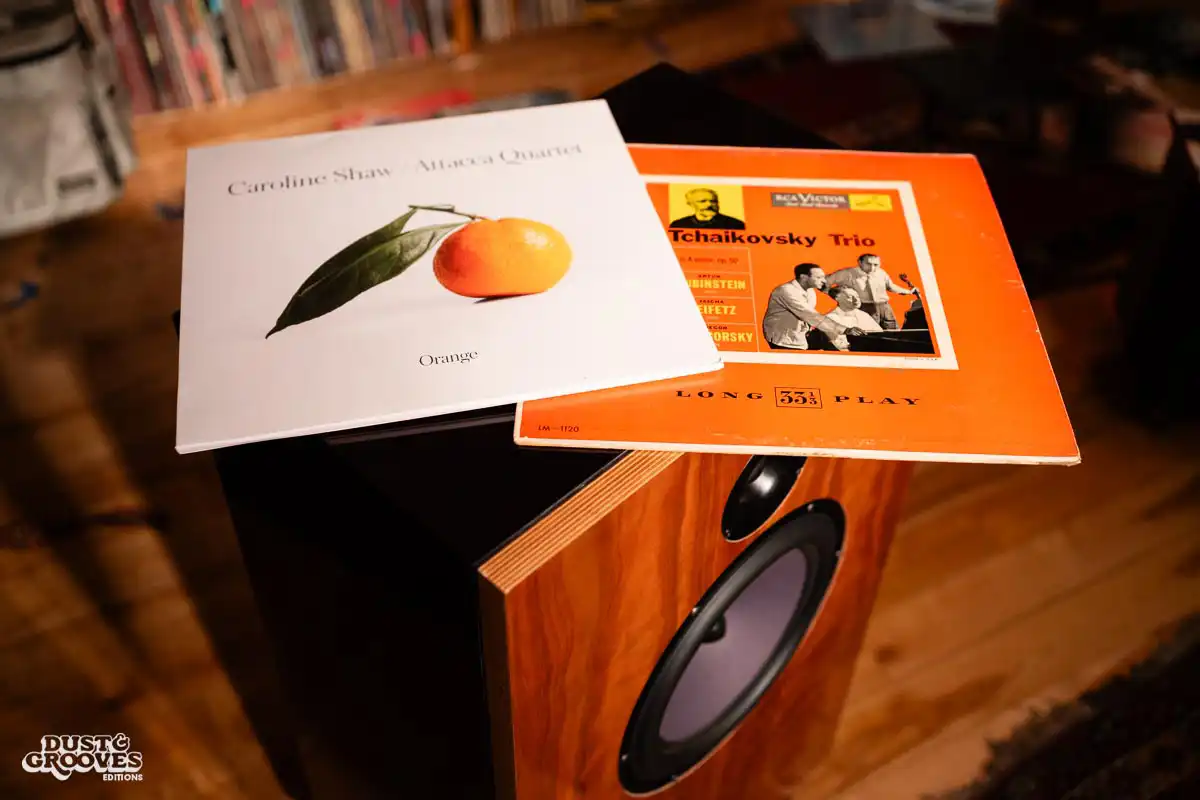
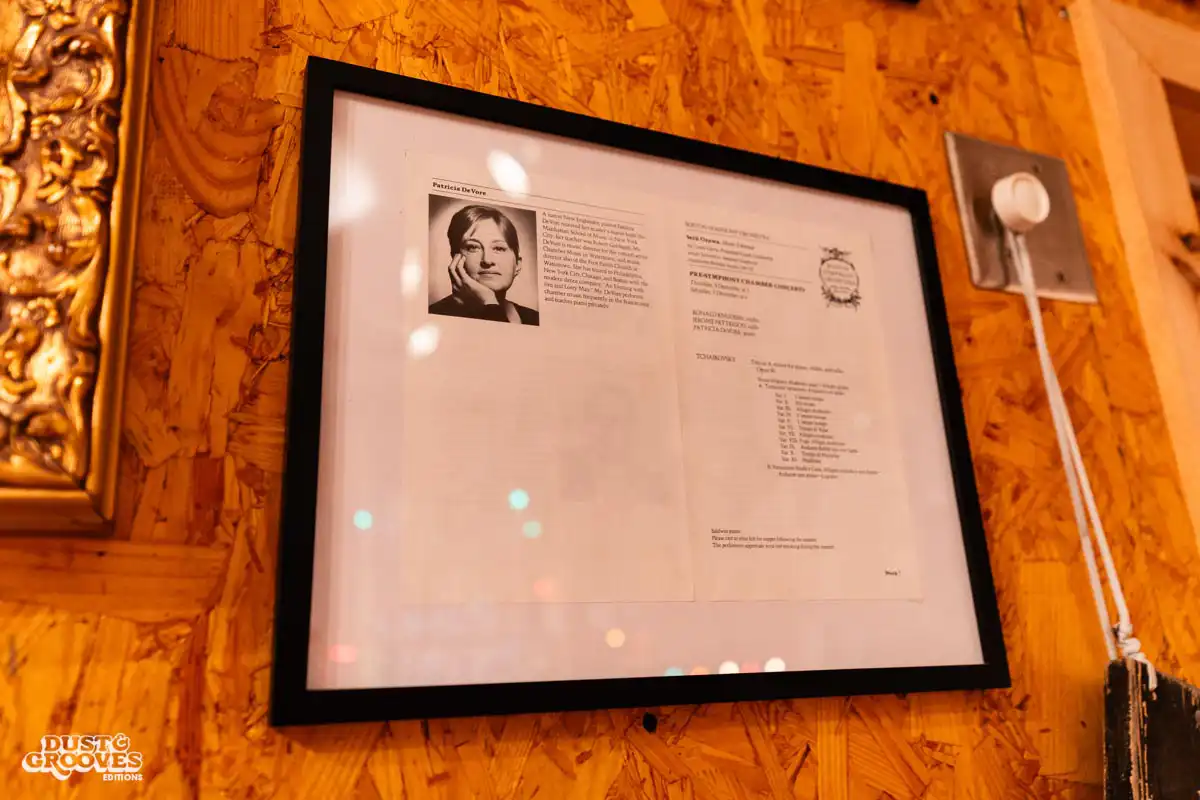
Has being a musician, a drummer, influenced the way you listen to music?
I would say that being raised by a musician had the biggest influence on the way I listen to music. I am an audiophile and I was an audiophile as far as I can remember. I was never very serious about playing an instrument as a child. I was serious about listening to recordings, listening to records and radio and cassettes.
When did your love of music turn into your chosen profession as a speaker designer and manufacturer?
It was very gradual, it sort of happened in stages. In stage one as a kid, I was the guy who made mix tapes. That wasn’t exactly a business but it was something that I became known for.
With college came stage 2. I was broke but very much admired some of the expensive hi-fi speakers I saw and heard in stores so I decided to build my own. I read every book I could find on the topic and started designing and building my own speakers.
From the ‘80s all the way through the ‘90s I was building speakers and became known for that–building commissioned speakers. This gradually led to me starting my company, DeVore Fidelity, in 2000 which is when I became a full-time speaker designer and builder. You could say I parallel-parked my way into it gradually. It wasn’t like walking through a door.
"For me, PJ Harvey is standing on the shoulders of The Breeders and Chrissie Hynde and the Pretenders. But with Dry record, she put on a funky little dress and some big ass combat boots and kicked down the door of the music industry and blew everyone away."
John Devore Tweet
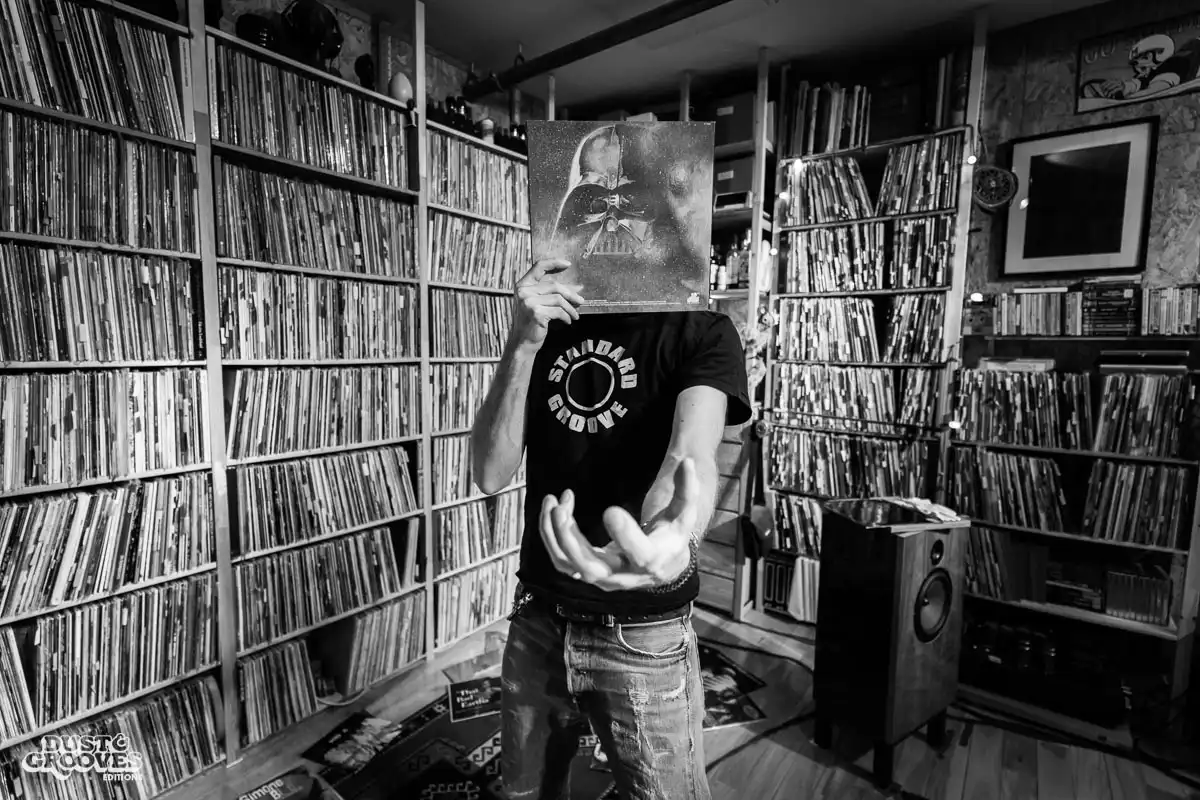
Do you have any favorite sources for discovering new music?
My early sources were radio. The specific radio stations that influenced me changed over the years and as I moved from city to city, but there are some stations from my early days that I still listen to. One of them is WNYC, the New York public radio station, specifically John Schaefer’s programs. He has been on the air since 1982 and his daily Gig Alerts always feature some very cool off the beaten path music. There’s also the NJ station WFUV, the Fordham radio station, and their program The Alternate Side.
I also use Bandcamp, which is an amazing resource. Over years of using and buying things from Bandcamp, I’ve discovered record companies and artists that I follow through their mailing lists who always have interesting music to recommend. It’s a steady flow of suggestions, based on my buying history and interests.
I also get music recommendations from musicians, from the masters. There’s no deeper guru, potentially, than a musician who has been influenced by another musician. Deeper influences that might never otherwise be apparent, revealing amazing connections.
What is the most exciting record sleeve you own and what do you like about it?
The album is Another Sun and the artist is Andy Hay.
If you buy Another Sun from Andy Hey on Bandcamp, it comes with a hand-painted cover and as far as I know, each one is unique.
When I bought it, Andy must have seen my mailing or my email address and figured out who I was and that I had a speaker company. So he painted one of my speakers into the record cover, which blew me away. There’s already a degree of personalization knowing that the musician hand-painted the cover, but to see this acknowledgment of who I was and what I do was just remarkable.
I’ve ordered records from other artists on Bandcamp who have included a little note or something written on the cardboard inner flap. A “Thank you” with a little heart or “Enjoy this”. It’s an almost unheard of direct connection to the artist that doesn’t exist when buying from record stores or listening on Spotify.
This personal connection is a huge ingredient in my interest in buying records.
The only thing that’s more important is the ritual of playing a record. And by that I mean it prepares me to listen more attentively. I feel like I’m committing myself to focus for a period of time when I pull out a record, maybe even clean it, and then put it on the turntable. The ritual demands attention and stills your mind, like the countdown to a meditation.
There’s also a preciousness to a record, the idea in the back of my mind that this record will only be played a certain number of times in its existence while it’s still perfect. While it’s still able to give me all of the music that’s in the grooves. I need to pay attention because if I don’t I may miss that last perfect play.
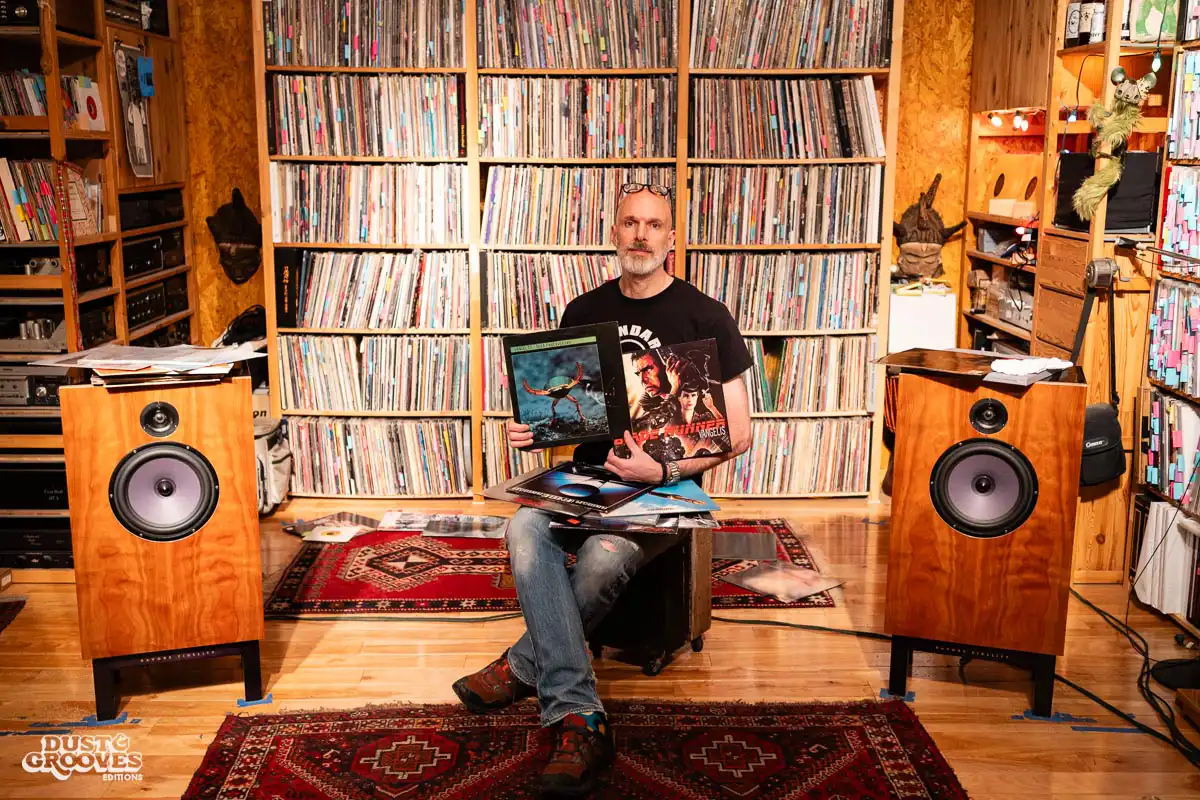
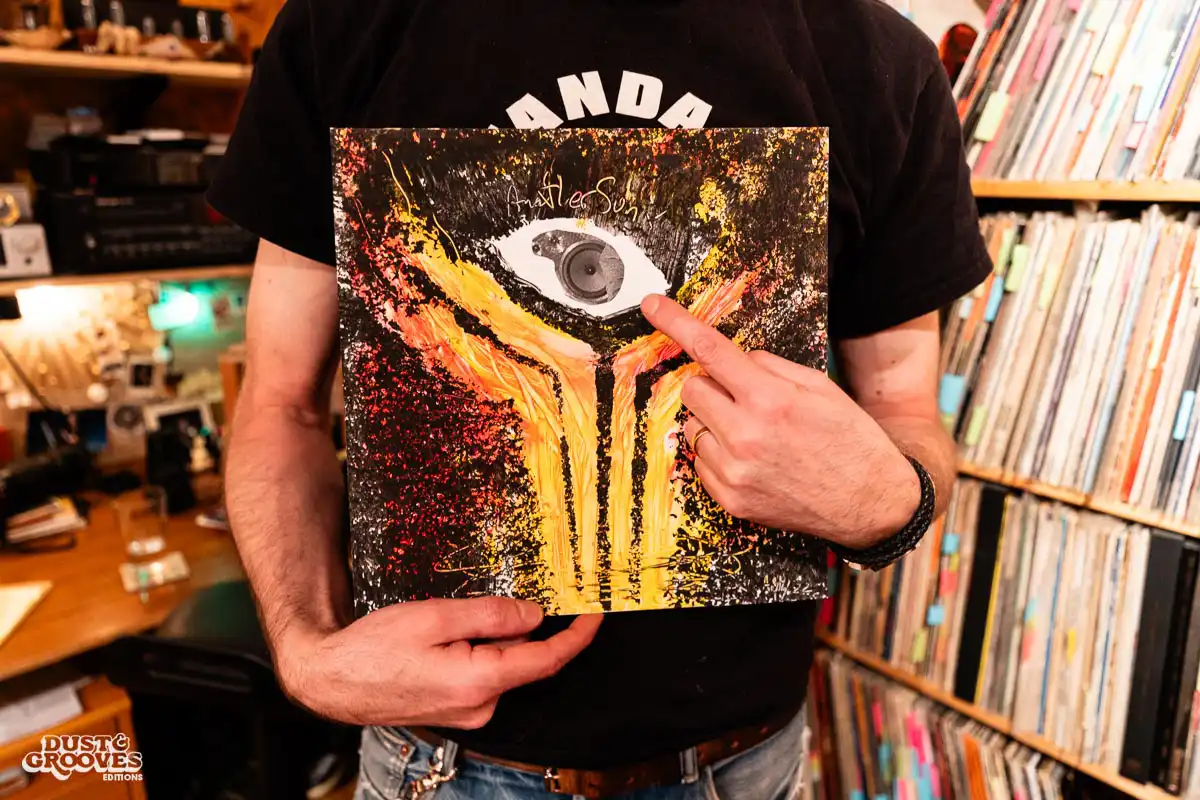
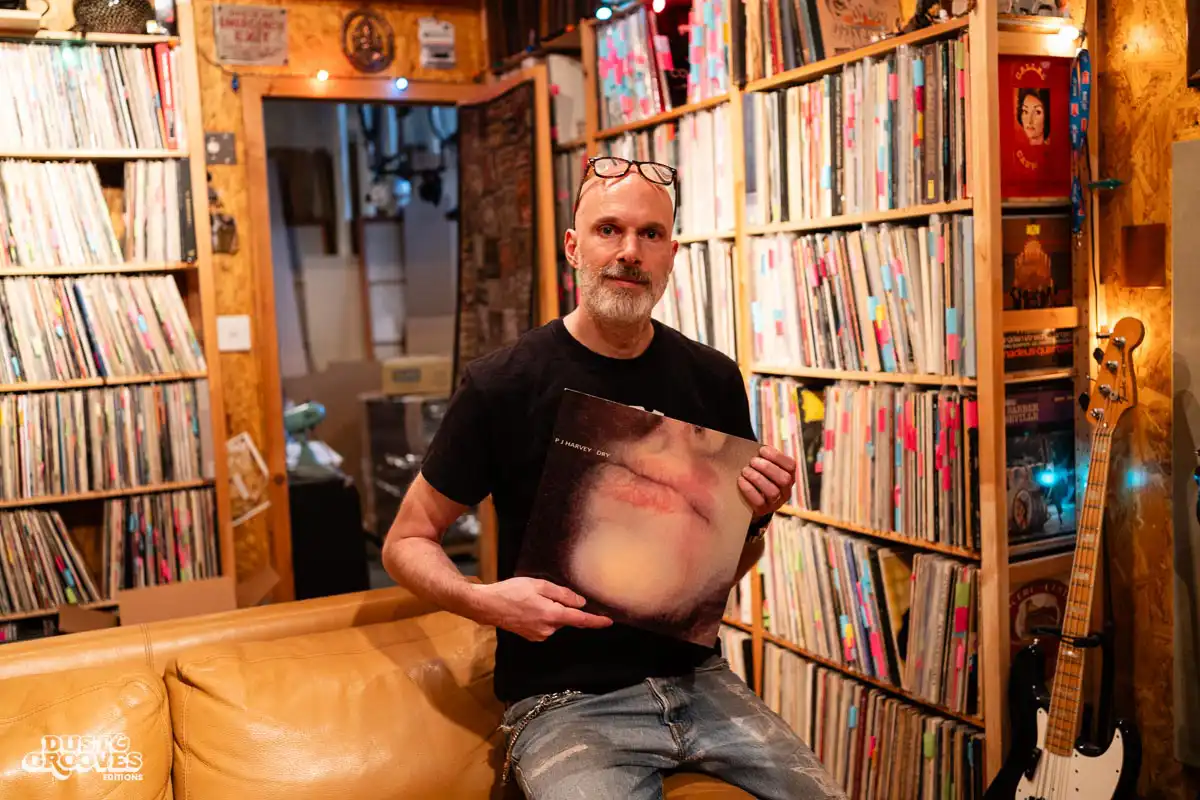
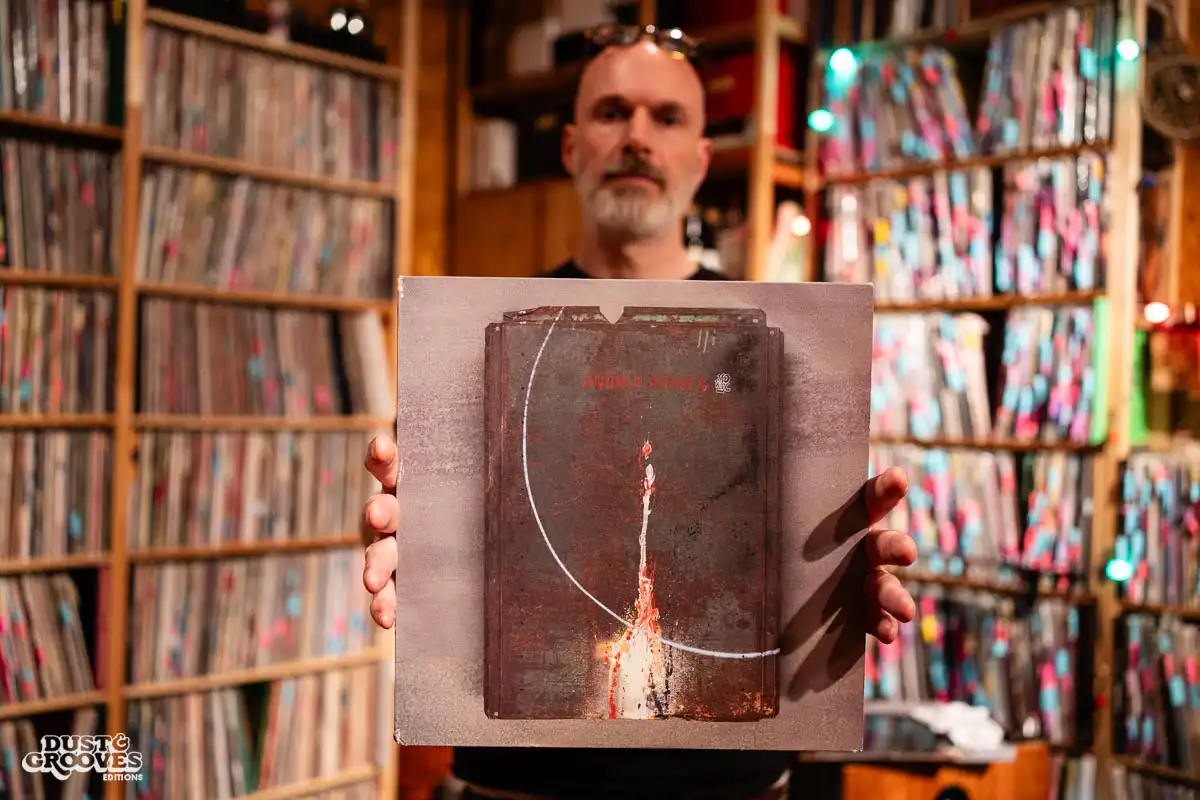

"I don't spend a ton of money on a few records, I spend a ton of money on records but that’s because I buy a ton of records.”
John Devore Tweet
Is there a Holy Grail record you’d love to own but remains out of reach?
Anyone who’s seen my record collection would be astonished to even imagine there’s a record that I know about that I don’t already own. So there sort of isn’t.
I don’t spend a ton of money on a few records, I spend a ton of money on records but that’s because I buy a ton of records.
What is your comfort record? A record that ALWAYS brings you to a safe place.
I was able to boil it down to three and they cover very different periods of my life.
The first one is Cat Stevens Teaser and the Firecat which came out in 1971. When I was a little kid, my dad was a teacher at UMass but at some point in the ‘70s, he left academia completely and sold beads on a blanket in Harvard Square. This morphed into a store in Bar Harbor, Maine where he sold beads and, tacked up on the walls, finished necklaces that he’d made along with some made by my sister and me.
That store had a stereo and about a foot-and-a-half stack of records. Any record in that foot-and-a-half stack that gets played today immediately brings me back to Boston Baked Beads in Bar Harbor, Maine. But the one that has stuck with me the most is Cat Stevens. Every time I listen, it offers a nice, peaceful reset back to those times.
The second record that brings me back to a special place and time is McCoy Tyner’s Inception. This is a record that I’ve had since college. Right after college, I moved to New York and then I chased someone out to LA and spent nearly 3 years there, never really fitting in. But I tried to absorb LA culture. I read Raymond Chandler novels and listened to a lot of Los Lobos, Calexico, and others. But I never really fit in.
Inception was my lifeline back to New York. Listening to it always tied me back to the East Coast. This record is a trio with Elvin Jones on drums and Art Davis on bass with Tyner on piano and it’s a perfect stripped-down trio. Nobody is showboating and it has a really even-keeled tempo. There are few songs where McCoy Tyner and Art Davis play in unison, piano and upright bass, which is interesting because upright bass is never really in tune which creates these really beautiful modes.
The last record represents a period in my life when I was back in New York and completely untethered and free. I was selling hi-fi a few days a week which was fun, I was playing in bands, doing some illustration work on the side, and building my own speakers. I wasn’t tethered to any kind of weekly schedule so weekends and weekdays didn’t make any difference to me. I could play pool until 4 AM on a weeknight kind of free.
The record is Smoker’s Delight, the second studio album by Nightmares On Wax, released on WARP in 1995. Listening to this record is a way for me to get back to my late twenties and early thirties, to this beautiful point in time when you’re living in the place you know you’re going to live for a long time and you’re just doing shit you want to do.
Smoker’s Delight and the Cat Stevens are in the top 5% of my most played records.
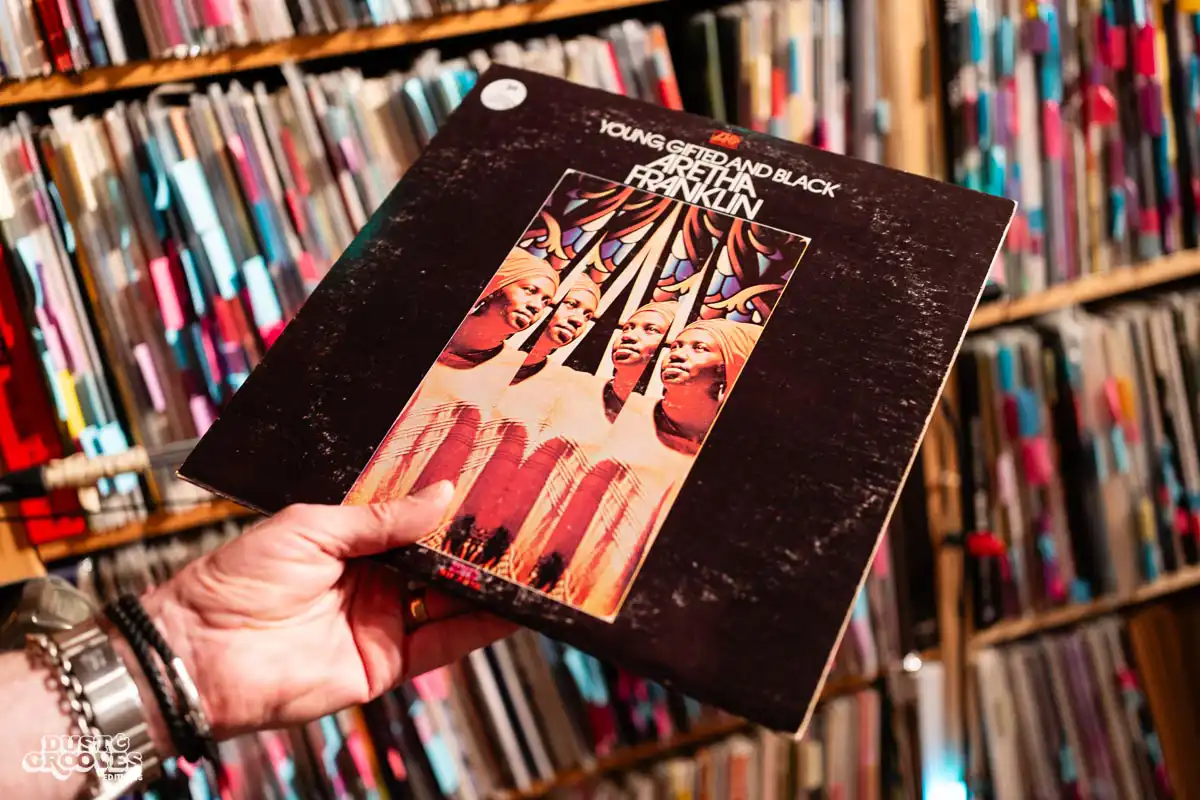
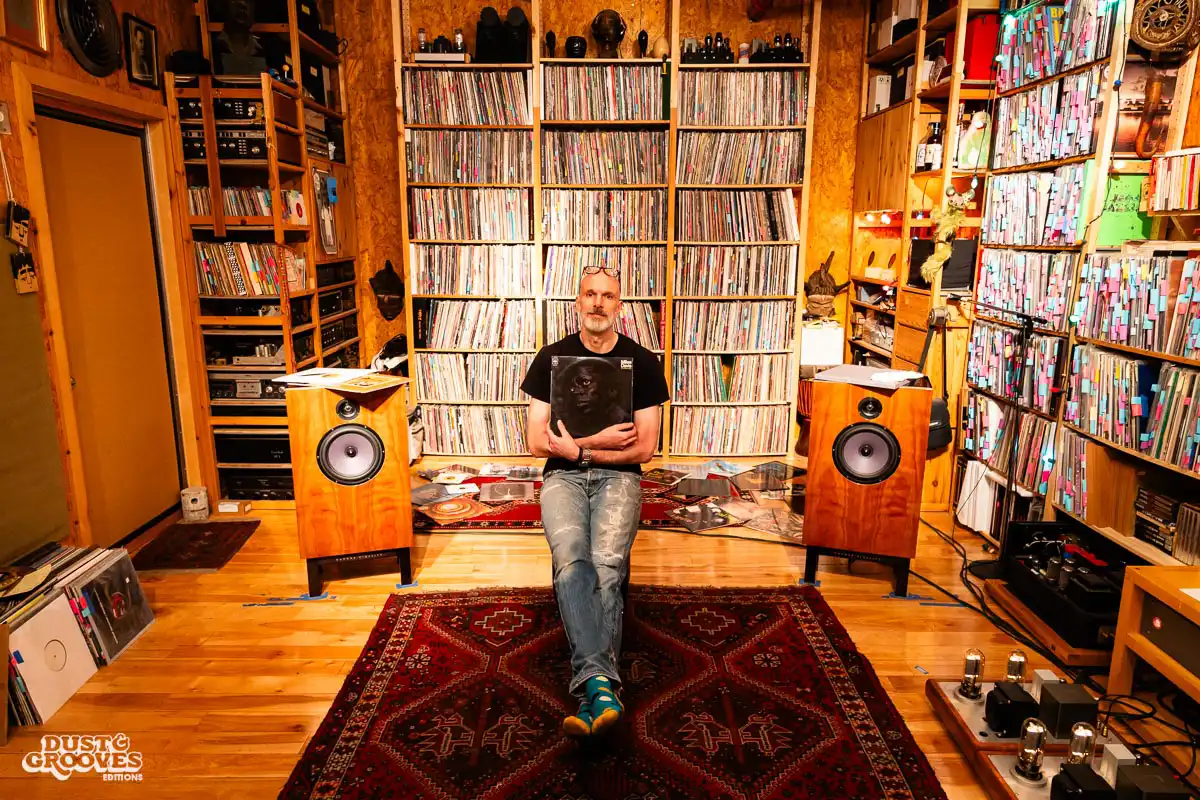
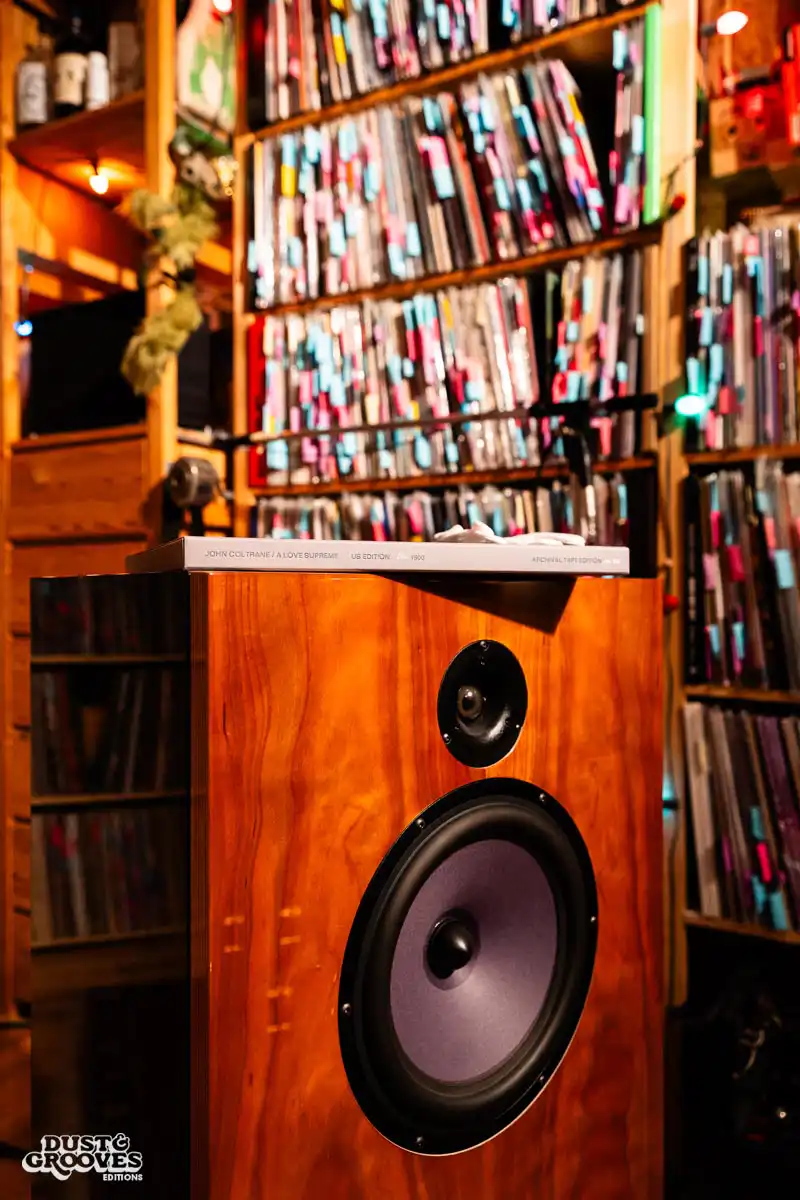
"Coltrane took post-bop modal jazz and stretched it into this spiritual meditative album long journey."
John Devore Tweet
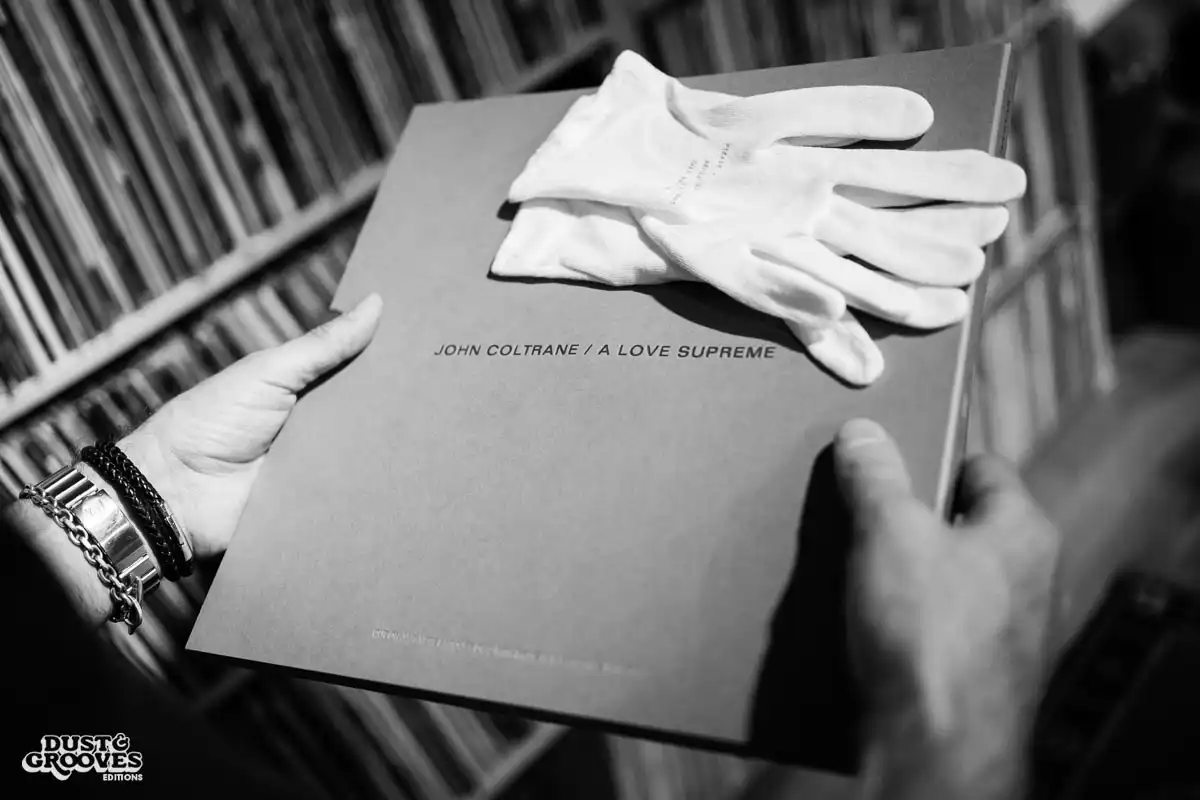
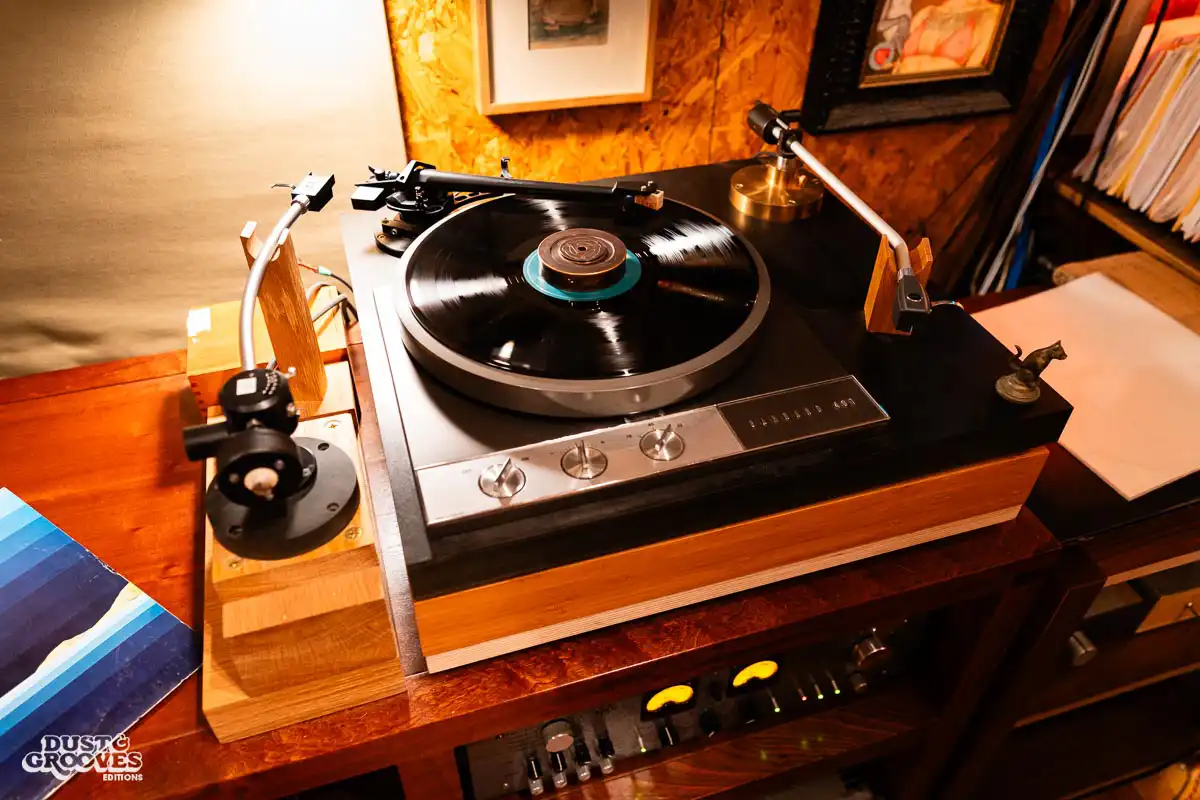
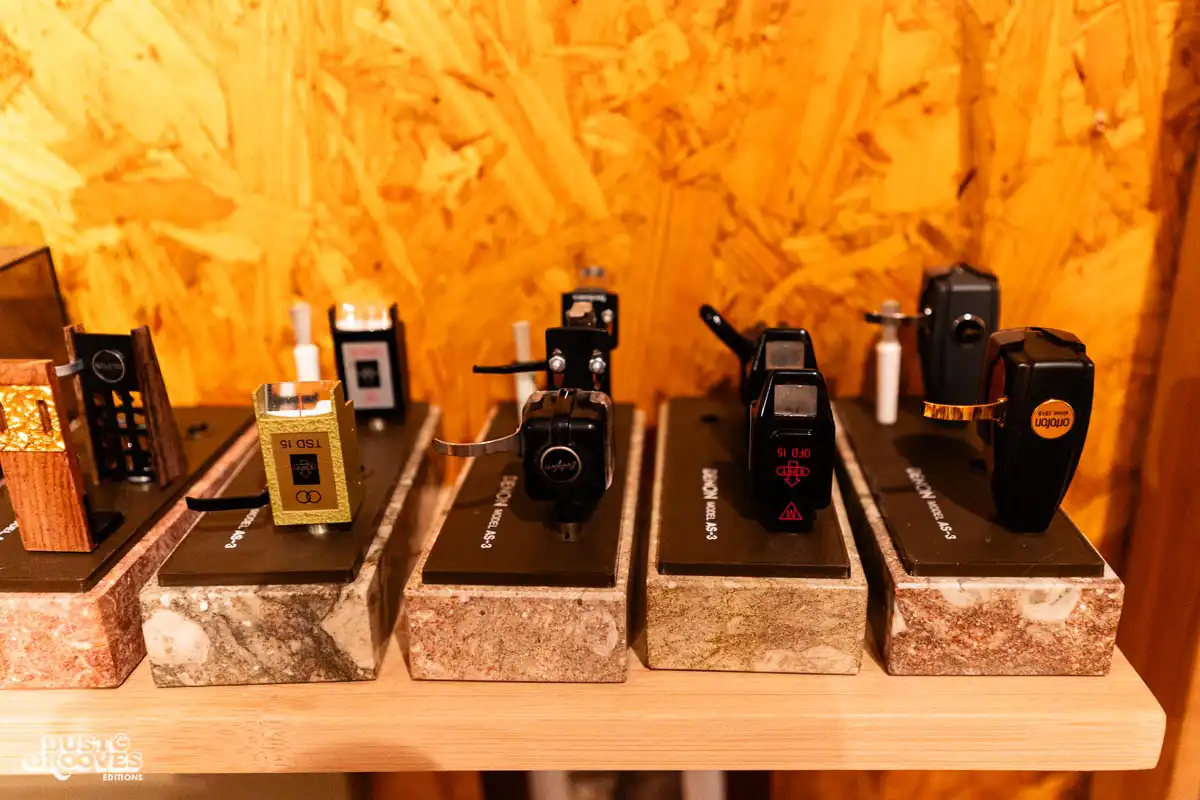
Who would you like to see next on Dust & Grooves?
My first thought was Zach Cowey. Zach owns my speakers and he has a magnificent vinyl collection, but I saw that he was already in Dust & Grooves.
Patrick Armory. Patrick is the general manager of Matador Records and he has a fascinating record collection. Patrick is a fascinating guy with a lot of really obscure interests in music and he’s a deep diver so he has encyclopedic knowledge of these completely obscure albums that he can talk about in great detail.
Patrick wrote a book that was published by Cambridge University Press titled, People and Identity in Ostrogotic Italy, 489-554. So yeah, he would be a fascinating addition to Dust & Grooves.
·
John Devore is the president and chief designer of Devore Fidelity. He has gone to win awards and universal acclaim for every one if his products.
Catch John talk about music and Hi-Fi in his youtube channel.
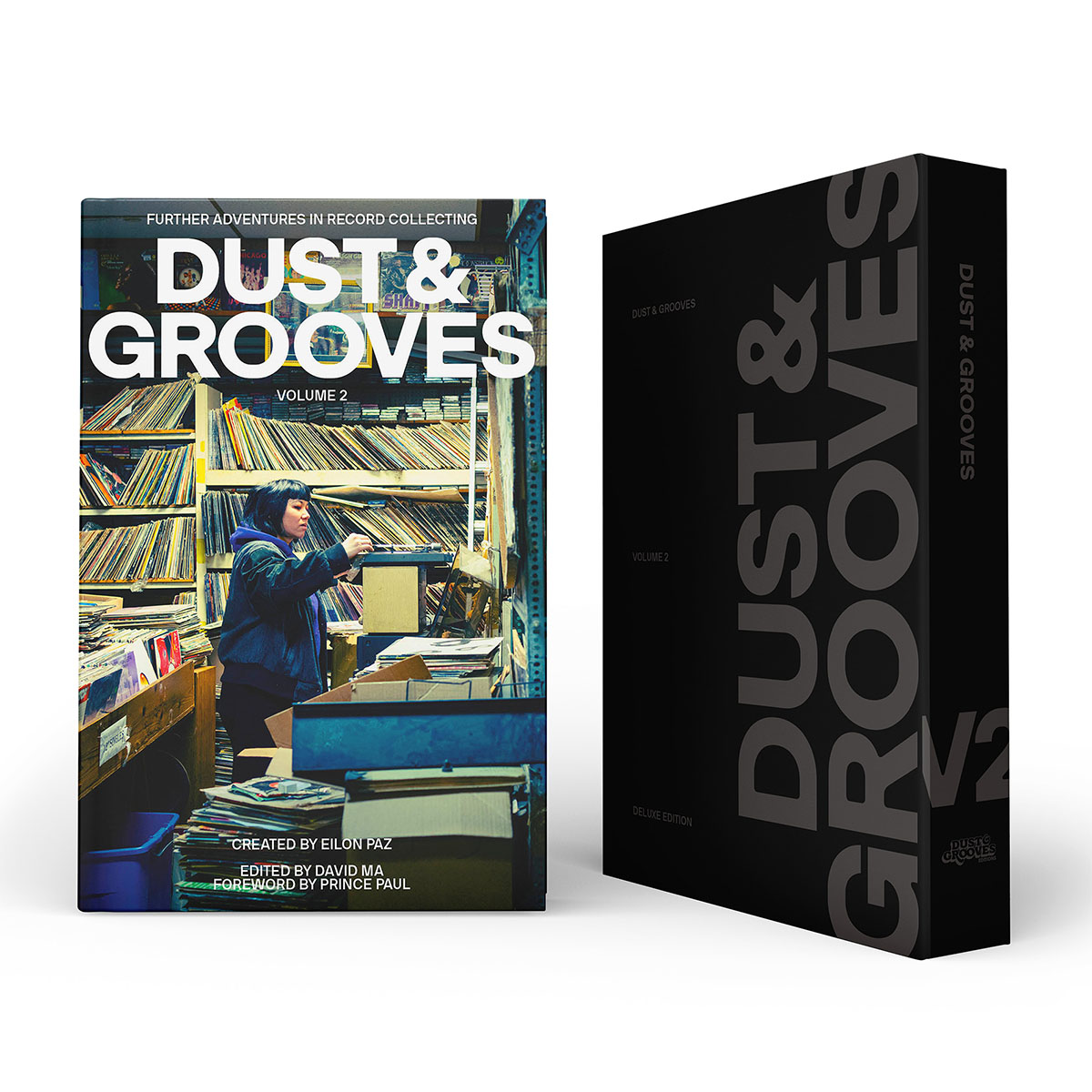
Dust & Grooves: Further Adventures in Record Collecting – Deluxe Slipcase First Limited Edition
Further Adventures in Record Collecting
Dust & Grooves Vol. 2
John Devore and 150 other collectors are featured in the book Dust & Grooves Vol 2: Further Adventures in Record Collecting.
Book drops October 15, 2024
Become a member or make a donation
Support Dust & Grooves
Dear Dust & Groovers,
For over a decade, we’ve been dedicated to bringing you the stories, collections, and passion of vinyl record collectors from around the world. We’ve built a community that celebrates the art of record collecting and the love of music. We rely on the support of our readers and fellow music lovers like YOU!
If you enjoy our content and believe in our mission, please consider becoming a paid member or make a one time donation. Your support helps us continue to share these stories and preserve the culture we all cherish.
Thank you for being part of this incredible journey.
Groove on,
Eilon Paz and the Dust & Grooves team



